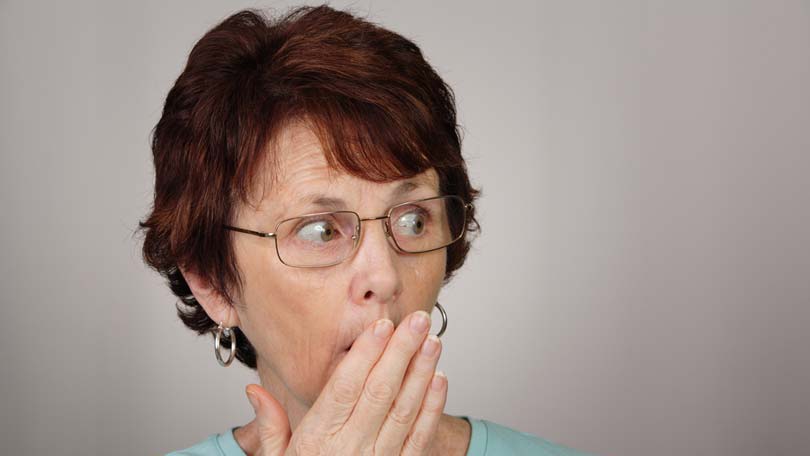If you have a teenager, then chances are you have probably noticed that the routine day-to-day jargon of teens has changed over the years to include quite a bit of foul language. Facebook posts, tweets, and text messages among the teen population tend to also include quite a bit of slang terms, many of which are acronyms for some of the most vulgar of curse words known to humankind.
Is this simply an evolutionary trend showing an increasing lack of respect (and self-respect) or have teens always been prone to using foul language – especially in the absence of adults?
More than likely, the problem with swearing and teens is a combination of things in progress. For one thing, the world has seemed to become more immune to bad language, and even fairly benign words such as ass, bitch, or damn are no longer being edited from prime time television. If you have watched any of the Degrassi episodes, then you know probably know that these words are no longer taboo among certain settings. Many literary works aimed at teenage audiences are also full of trash talking characters and utilize curse words regularly throughout their composition. Combine this perceived immunity to cuss words with the technological culture that teens are immersed in, which by the way, seems to have very little (if any) general audience rating included, and it seems natural that teens today would have dirty mouths. Still, for some adults – this rising trend in cussing is disheartening.
The truth is, that teens have always cussed privately in their rooms and among the company of their peers. Even back in the day, cussing was a gateway to a phase of adult life that teenagers tinker with in order to feel as if they are in control. In 2008, a report by the United States Board of Education indicated that teenagers today are cursing not just among their peers, but also in school settings and in front of adult company more often than in any other time in history. Whereas years ago an ill-placed Dammit would have got you a seat in the principal’s office, today it is seen and handled as a minor offense in the public education system.
And parents too are changing. Many teens today are actually comfortable using curse words in front of their parents. And many parents don’t feel that a well-placed yet ill-meaned cuss word is something that deserves to a full grounding or stiff punishment. In other words, talking the trash talk is seen as a simple and mild side effect of the teenage culture. Some parents feel that opening up the acceptable language in the home to include curse words gives teens a sense of power and entitlement. Sure, there has to be limitation to which words can be used and how they can be used. For instance if your teenager daughter comes home and tells you a girl at school is a ‘total bitch,’ then it shows to a certain respect that she is comfortable talking plainly and naturally to you about her life. On the other hand if your teenage daughter feels that she can call YOU the same term – then you might have some problems with respect to deal with.
In the first case of allowing a teen to utilize cuss words around his or her parents – many parents feel that they are slightly closing the generational gap and empowering the parent child relationship with some tolerance and understanding. After all one of the biggest complaints teens have with their parents is that they feel they just don’t understand them, or don’t remember what it is like to be a teen. By not focusing on the word choice and focusing instead on what a teen is trying to tell you – parents can get more information from their kids and avoid a lot of needless hassles and discipline over curse words.
Still, many people alive in the world today just don’t understand how generic cursing has become. And, it stands to reason that teens who are allowed to curse should do so within certain societal confines. For instance, teens shouldn’t be cussing in public. You don’t want to go to a sit down restaurant or be in a store with your teen and hear them stringing together superlatives as if there is no tomorrow. If the talk is allowed in the home, or in private between the two of you, fine. But beyond the confines of your private life, teens need to be taught how to communicate and how to empower the use of a filter. Otherwise, they risk being seen as nothing but trash talking thugs.
The ironic thing is that in the ‘now parent’ generation most adults STILL, even though they are grown up with kids of their own, don’t feel comfortable using foul language in front of their parents. This is the generation that literally had their mouths washed out with soap if the occasional ‘dammit’ slipped off the tongue inadvertently. These adults are the ones who today, are allowing their teens to curse in front of them, and perhaps even with them in the privacy of their homes. An evolutionary twist of fate, or simply a product of a world that has become immune to profanity and now accepts the vulgar and disrespect as part of a new societal way?
With so many things facing today’s teens – perhaps one of the last things that adults should be worried about is the use of profanity, long seen as a rite of passage into from childhood to adulthood. The bottom line is that the following quote which reads, “Don’t try so hard to raise a kid good that your forget you already have one,” an make uttered nuisances and curse words seem pretty mild in comparison to the problems that some families face with their teens.






